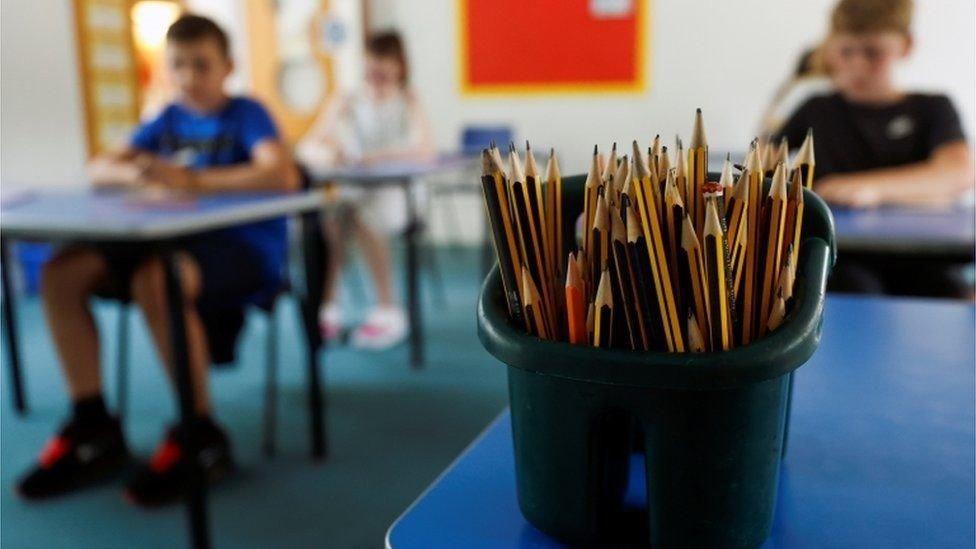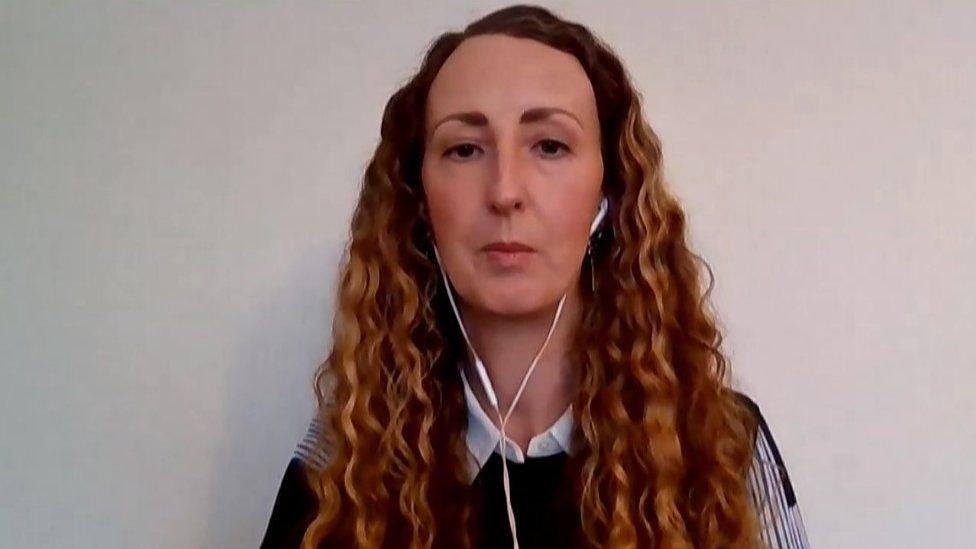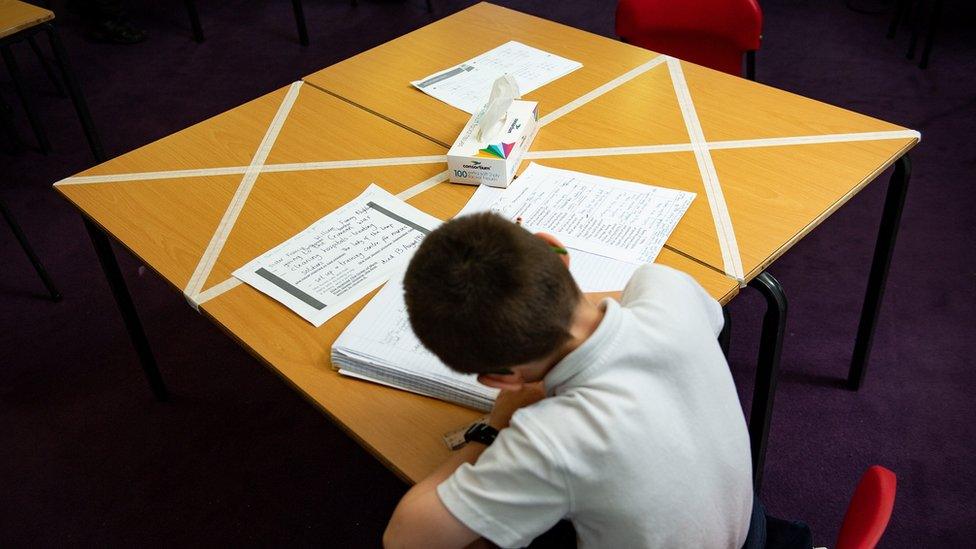Dyslexia: Mother 'stressed out of my mind' over support for son
- Published

The Education Authority said almost 200 children are currently on a waiting list for direct intervention support for dyslexia
The mother of a dyslexic child has told assembly members that seeking support and help for her son left her "stressed out of my mind".
Kate McKeown told Stormont's education committee about her son Aidan's experience.
She said that it took years to get her son literacy support from the Education Authority (EA).
"He is in P7 now and he still can't spell more than three-letter words," Ms McKeown said.
Una Turbitt, from the EA, subsequently told the committee that around a quarter of all school pupils in Northern Ireland will experience "some dyslexic-type difficulties".
"Around 10% will present difficulties that require additional supports to be provided," she continued.
Failings in services
The EA also revealed that almost 200 children were currently on a waiting list for "direct intervention" support for their dyslexia.
Ms Turbitt said that support services for pupils with special educational needs (SEN) were "under considerable strain and not delivering as they need to be".
However, she said that the EA was making progress in helping the increasing number of pupils with special educational needs, including children with dyslexia.
"The EA literacy service is currently supporting over 2,300 pupils through direct interventions with pupils in schools," she said.
There is to be an independent, external review of how the EA supports children with SEN.
That follows a number of highly critical internal and external reports into failings in the EA's services for children with SEN.

The EA said around a quarter of all school pupils in Northern Ireland will experience "some dyslexic-type difficulties"
According to the British Dyslexia Association, dyslexia is a learning difference which primarily affects reading and writing skills.
It can mean that children have difficulty reading, writing and spelling.
Ms McKeown told the education committee that it was in primary two when "we noticed that Aidan had great difficulty with phonetics".
"It made no sense to us that a bright child couldn't read, write or spell in P2 or remember any of the sounds," she said.
"When we went to the principal to speak to him about it, he said that unfortunately they didn't have the money to provide extra support to Aidan so there was really nothing that they could do."
Ms McKeown said they sought private dyslexia screening for Aidan and that found he was "severely dyslexic".
"He couldn't actually do the work that he was given, he couldn't work independently, he was always in a constant state of anxiety, he was really sick in his tummy every day," she said.
"I had great problems actually getting him into school."
'Mum, I could do no work'
According to Liam Mackle, from the Children's Law Centre (CLC), who helped Aidan's family, it was only after a tribunal hearing in 2020 that Aidan finally received two sessions a week of direct literacy support from the EA.
Ms McKeown said that since Aidan had received one-to-one support from an EA specialist, his experience of school had changed.
She read out a statement Aidan had written about that change.
"Mum, I could do no work. I used to sit and look out the window, I couldn't do anything or join in the class," he wrote.
"I felt left out, I felt sad, I felt stupid and lots of times I felt like crying.
"I can write, I can read books.
"It still takes a bit longer to do work but I'm good at maths."
'Overwhelmed and under-resourced'
Rachel Hogan, from the CLC, told MLAs that the EA's literacy service which provides specialist support for children with dyslexia had been "overwhelmed for many years and under-resourced".
"The key issue is failure of early intervention and children having to wait for very lengthy periods for to receive help and support," she said.
Ms Hogan said that, as a result, children like Aidan could not function in class when it came to reading, writing and spelling from P2 or P3 onwards.
She also said that there was no consistency in the collection of data by the EA to enable proper dyslexia services to be planned.

Rachel Hogan, from the Children's Law Centre, said the EA's literacy service has been overwhelmed for many years
EA officials later agreed that the data on the prevalence of dyslexic pupils "isn't as informative as we'd want it to be at this present time".
Cynthia Currie, from the EA, said that it was "difficult to pinpoint exactly" the number of schoolchildren in Northern Ireland who had dyslexia.
But she said that Department of Education census data indicated that "over 9,300 children have been listed as dyslexia or specific literacy difficulties" in the 2020/21 school year.
She said that 1,621 children had a statement of SEN where dyslexia was named as a primary or additional special need.
Ms Currie also said that 192 children on the waiting list for "direct intervention" support for their dyslexia.
However, Ms Turbitt said that while referrals to the EA for literacy support had fallen during the pandemic when children were out of school, need for help was expected to rise.
"The service is anticipating a referral spike during this academic year which will create further challenges for the service," she said.
Related topics
- Published19 September 2020

- Published22 April 2021

- Published25 February 2021
